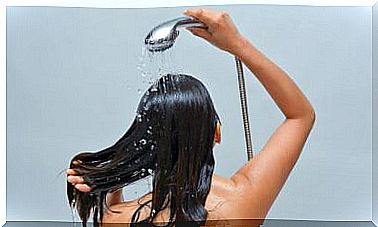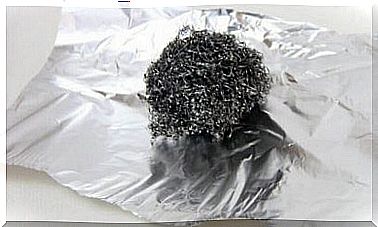Important Aspects Of Caring For A Newborn Baby’s Skin
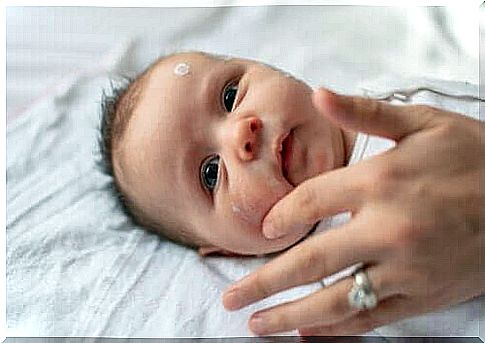
It is important for all parents to know about the care of a newborn baby’s skin. As the skin of healthy babies forms a barrier of resistance, it continues to develop for at least a year after birth.
As a consequence, the susceptibility to dryness and irritation from external factors is higher than in other age groups. Because of this, too much heat or cold can cause allergic reactions. Certain products can even lead to an aggressive reaction.
Read on to find out more about caring for a newborn baby’s skin.
Care of a newborn baby’s skin
To begin with, it is essential that cleansers and moisturizers for babies are well tolerated by the skin and do not alter the stratum corneum (the outermost layer of the skin). After birth, the skin is sensitive and exposed to factors that can cause the skin barrier to break down.
It includes the following:
- Savl.
- Secretions from the nose.
- Urine.
- Stools (including enzymes from stools).
- Shit.
Due to daily exposure to these factors , it is essential to ensure optimal cleansing of the skin and adequate protection of the barrier in the baby’s skin. To do so, we recommend that you follow the principles we will mention here.
Caring for a Newborn Baby’s Skin: Hygiene
Hygiene of a newborn baby’s skin should begin when body temperature is stable. At birth, the pH of the skin is neutral. Later it becomes sour.
Use of alkaline soap causes a short-term increase in pH and predisposes the baby to infection and irritation. For this reason, neutral or slightly acidic soaps without perfume are recommended in minimal amounts.
During the first two weeks , the baby should be washed gently and with warm water only. Excessive temperatures, excessive soap consumption and very frequent or long baths can, among other things, contribute to dry skin (irritative eczema) according to studies by Pediatric Dermatology.
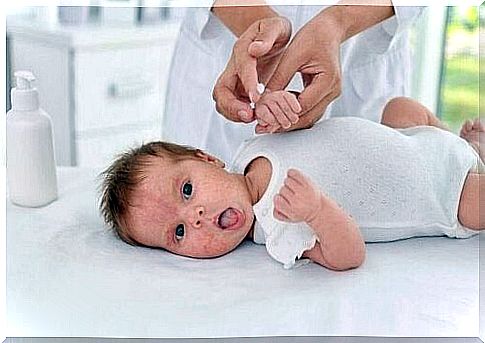
Temperature
To ensure good skin care in babies, one will need to consider the temperature of the baby’s surroundings. This is because when the temperature is too high, it can lead to the occurrence of sweating or hyperthermia. On the other hand, it can lead to hypothermia if it is too cold.
This is why you will need to ensure adequate protection against temperature changes especially in summer and winter. According to information from the American Academy of Pediatrics , babies under the age of six months should be kept out of direct sunlight as much as possible.
Antiseptics
The use of products containing antiseptic ingredients to cleanse healthy skin is not recommended. This is because it causes changes in the cutaneous microbiological ecosystem and contributes to the proliferation of other types of microorganisms.
The skin can also easily absorb alcohol from it and it can cause burns and changes in the pH of the skin.
Moisturizers
Moisturizers can be used as part of the care of a newborn baby’s skin. However, it is only so long that they contain the right ingredients to be used for babies. Then they can help improve the skin’s protective barrier after a bath. It is even advised to consider using them twice a week.
To prevent them from closing the skin inside, the ideal solution is to apply a thin layer to avoid closing residues inside the folds of the skin. Otherwise, thermal deregulation and bacterial colonization can occur, as described in a publication in the Journal of Investigative Dermatology.
Care of the umbilical cord
The stump of the umbilical cord usually falls off between five and fifteen days after birth. It can be considered a wound and because of it it is also a possible place where bacteria can penetrate.
One should therefore keep the stump dry and clean without any bandage or protection. It is also advisable to wear loose clothing and avoid covering the navel with the diaper. In case of inflammation, disinfectants can be used for diaper changes. This should be done under the guidance of professionals.
Skin care in the diaper area
Bleeding eczema is quite common and affects most babies at least once. The enclosed environment in the diaper leads to a complex interaction between factors with harmful potential. In that sense, a publication in the Indian Journal of Pediatrics underscores the importance of keeping the area clean and dry.
When moisture is trapped inside for too long in the diaper, the friction will increase. As a result, the skin becomes too moist and the growth of bacteria can occur.
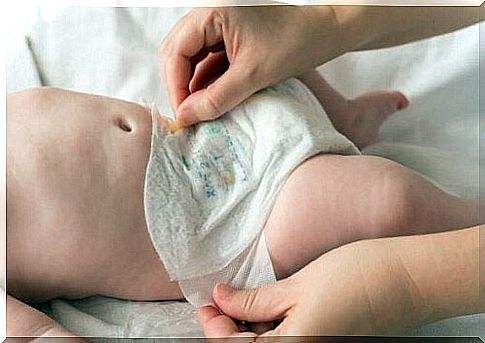
A summary of the care of a newborn baby’s skin
A newborn baby’s skin is more delicate because it has not fully developed its protective barrier. Because of this, it is important to clean it very hygienically and ensure that one uses the most appropriate products.
To sum up, you have a responsibility to care for a newborn baby’s skin and keep it healthy to reduce the risk of allergic reactions and infections. One will also need to consider aspects such as temperature and appropriate use of antiseptic and moisturizing agents.





